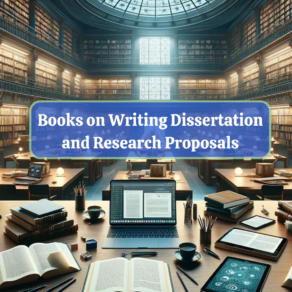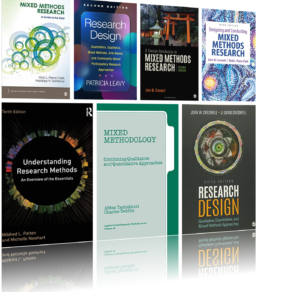Books on how to write and publish research papers are the topic of our blog post today!
Embarking on the journey of writing and publishing scientific papers signals your initiation into the academic and professional world. The transition from years of intensive learning to sharing your knowledge with the world is a milestone whether you’re a new Ph.D. graduate or a veteran educator.
Indeed, publishing your research is akin to emerging from a protective shell, basking in the bright light of scrutiny. This experience can stir feelings of vulnerability and impostor syndrome, particularly when your work is critically examined by peers, which is an inevitable part of the process. However, fret not, as with time and experience, you develop resilience, much like the tough skin of an alligator. We all do!
As a scholar, you’re likely acquainted with the often daunting axiom ‘publish or perish’. This mantra embodies the pressure academia imposes on its students and scholars to maintain a steady flow of publications. Such demands can sometimes feel stifling, seemingly inhibiting your creativity.
Having spent numerous years crafting academic prose, I’ve experienced firsthand the discomfort of pushing past personal thresholds. Fortunately, this blog offers a haven for my thoughts, a space where I can articulate ideas freely, without the constraints of formal structure, academic vernacular, and austere style. While I find immense gratification in writing research papers and the thrill of their subsequent publication, I’m also acutely aware that an excess of anything can be detrimental.
Check out these other posts on academic writing:
That brings me to the objective of this post: to share a curated collection of exceptional books that provide insights into writing and publishing research papers. The act of creating and disseminating research papers is paramount for the progression of knowledge in various scientific fields. Moreover, it opens opportunities for wider audiences to engage with your research and offers a platform for receiving peer feedback.
These books cover a broad spectrum of academic writing: from formulating robust research questions, honing writing skills, navigating the maze of the publishing process, responding to reviewers, to understanding intellectual property rights. They provide comprehensive, practical guidance for aspiring academic writers aiming to excel in their craft.
Books on How to Write and Publish Research Papers
Here is a collection of some very good books on how to write and publish research papers:
1. Writing Science: How to Write Papers That Get Cited and Proposals That Get Funded, by Joshua Schimel
“Writing Science” is an insightful manual that offers a comprehensive guide to effective science writing, using the principles of story structure. This approach seeks to engage and retain the reader’s attention while delivering core arguments effectively.
Schimel teaches how to create an overall structure for a paper or proposal, ensuring that each section, paragraph, sentence, and word contributes to the narrative, with an emphasis on creating memorable and engaging stories.
2. A Manual for Writers of Research Papers, Theses, and Dissertations, by Kate L. Turabian et al.
Kate L. Turabian’s book is a classic guide to scientific writing. Despite the changes in research methods over the years, this manual maintains that fundamental aspects remain unchanged.
The book encourages writers to construct an evidence-based argument, cite their sources correctly, and structure their work logically, thereby establishing a strong research question. Turabian’s guidelines are a timeless resource for anyone involved in scientific writing.
3. Writing Your Journal Article in Twelve Weeks, by Wendy Laura Belcher
Belcher’s book is a detailed, step-by-step guide to crafting a research paper from start to finish. The approach is systematic and organized, providing daily tasks, templates, and reminders to assist writers in creating strong articles.
The goal is to enhance the confidence of academic writers – from graduate students to faculty members – ensuring they understand the rules of academic publishing and possess the tools needed for success.
4. How to Write and Publish a Scientific Paper, by Barbara Gastel, Robert A. Day
Gastel and Day’s book imparts necessary skills to write and publish a scientific paper effectively. This comprehensive resource touches on every aspect of the process, from writing different sections of a paper to publishing it.
The book also addresses psychological, ethical, and cultural considerations, offering invaluable advice on composing recommendation letters, preparing presentations, editing work, and dealing with the media.
5. The Scientist’s Guide to Writing, by Stephen B. Heard
Heard’s book emphasizes the need for clarity in scientific writing. It encourages direct engagement with the writer’s attitudes and behaviors during the writing process.
By sharing practical tips on various aspects of scientific writing and encouraging deliberate practice, Heard aims to make scientific writing more accessible and effective.
6. The Craft of Scientific Writing, by Michael Alley
“The Craft of Scientific Writing” is a rich repository of insights gained from Alley’s extensive teaching experience across continents. Rather than offering a formulaic approach, this book brings to light the nuances that distinguish excellent scientific writing, using concrete examples to illustrate these principles.
7. Scientific Writing and Communication, by Angelika H. Hofmann
Hofmann’s all-inclusive handbook provides guidance on all aspects of scientific communication. Covering everything from scientific writing style to preparing academic presentations and posters, this resource aids scientists in promoting their research and advancing their careers effectively.
8. Writing Scientific Research Articles: Strategy and Steps, by Margaret Cargill, Patrick O’Connor
Cargill and O’Connor’s book provides clear, systematic guidance for writing compelling scientific papers that increase chances for publication. The guide encourages scientists to apply their analytical skills, synthesis abilities, and effectively communicate their research.
9. Your First Research Paper, by Henry M Burton
Burton’s comprehensive guide demystifies the process of writing a top-quality research paper. It details everything from forming a robust research question and understanding intellectual property rights to referencing, footnote, referencing, footnoting, and the publishing process. This book offers readers the tools they need to craft a high-quality, publishable research paper while adhering to timelines.
10. Write an Impactful Research Paper, by Dr. Martins Zaumanis
Dr. Zaumanis’ book is an inspiring guide for producing impactful academic writing. It outlines the four steps of the “LEAP” process to become a prolific writer and helps researchers craft a compelling message based on their results.
Additionally, it provides advice on responding to reviewers and getting published in top journals. This book also unveils eight unwritten rules of academic publishing to boost citations and enhance academic careers.
11. Scientific Writing and Communication, by Angie Hofmann
Hofmann’s “Scientific Writing and Communication” is a comprehensive handbook covering all aspects of scientific communication. Presented in an easy-to-understand manner, it explains the basics of scientific writing style and applies these principles to various types of scientific documents. It also gives detailed guidance on academic presentations and posters, making it an ideal resource for students, researchers, and scientists across multiple fields.
12. How to Write a Lot, by Paul J. Silvia
Silvia’s “How to Write a Lot” is a fresh take on overcoming barriers to productive academic writing. It addresses common excuses and bad habits, providing practical strategies for becoming a better, more prolific writer.
The book offers guidance on writing, submitting, and revising academic work without sacrificing personal time. This second edition updates the tips and strategies to apply to most academic disciplines and includes a new chapter on writing grant and fellowship proposals.
Final thoughts
As we come to the end of this exploration into books that guide you through writing and publishing research papers, it’s hard not to feel inspired. The journey from an idea to a published paper is fraught with hurdles—be it crafting a compelling argument, mastering the art of citation, or navigating the publication process. I’ve seen in my own research journey how the right resources can turn these challenges into milestones. That’s what these books are: your trusted companions on a journey that, let’s be honest, can sometimes feel like a labyrinth. Whether you’re new to the world of academic writing or you’re a seasoned researcher looking to fine-tune your skills, these books offer a wealth of wisdom that can help you get your research off the ground and into the pages of a reputable journal.


















